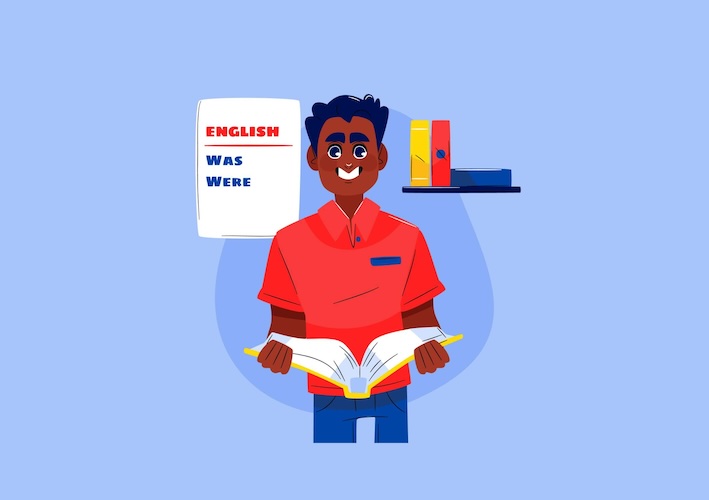
Infinitive and Gerund
Master the essential distinction between infinitives (to + verb) and gerunds (-ing forms) in English. Learn through practical scenarios when to use each form, helping you confidently handle constructions like 'enjoy doing' vs 'want to do' in everyday communication.
Table of Contents
1.Gerund and Infinitive
1.1Gerund
Gerund is just an -ing form of verb. For example if you have a Verb "go" just add "ing" at the end like this
| go | -> | going |
|---|---|---|
| And voila, you have a gerund form! |
 Practice Examples
Practice Examples
He keeps (try) _____ new restaurants.
She enjoys (paint) _____ landscapes.
I love (read) _____ books before bed.
1.2Gerund after silent "e"
If a verb has "e" at the end that doesn't produce sound, just delete it when making gerund form! Sure! Here are additional examples of gerunds based on the rules mentioned:
| Base Verb | Gerund | Rule Applied |
|---|---|---|
| dance | dancing | Silent 'e' dropped |
| bake | baking | Silent 'e' dropped |
 Practice Examples
Practice Examples
He is (write) _____ a letter to his friend.
She keeps (smile) _____ at everyone.
They prefer (make) _____ dinner at home.
1.3Double consonants
If the verb is one syllable (has only one vowel sounnd) and end with a combo of vowel and consonant, you need to double the last consonant. Sound difficult, but it is easier than you think, take a look at those examples:
| Word | Gerund | Explanation |
|---|---|---|
| run | running | double "n" |
| stop | stopping | double "p" |
 Practice Examples
Practice Examples
He likes (shop) _____ on weekends.
He is (sit) _____ in the garden.
Tom enjoys (swim) _____ in the ocean.
1.4Words ending with "ie"
When a word ends on "ie", you just change it for "y".
| Base Verb | Change to Gerund | Gerund Form |
|---|---|---|
| die | Change "ie" to "y" and add -ing | dying |
| lie | Change "ie" to "y" and add -ing | lying |
 Practice Examples
Practice Examples
She likes (lie) _____ on a beach.
He started (tie) _____ his shoes.
He keeps (die) _____ his hair blue.
1.5Gerund after certain verbs
Oftentimes we need to talk about two different activities in one sentence done by one person, and after certain verbs you must use gerund! Here are examples of sentences where certain verbs are followed by gerunds (verb + ing). These verbs commonly require the gerund form rather than the infinitive.
| Verb | Example |
|---|---|
| Enjoy | I enjoy swimming. |
| Avoid | She avoids eating junk food. |
| Consider | They considered moving to a new city. |
| Finish | He finished reading the book. |
| Mind | Do you mind closing the window? |
| Suggest | She suggested going to the park. |
| Start | He started learning Spanish. |
| Stop | They stopped talking during the movie. |
| Like | We like cleaning the house. |
| Keep | You should keep practicing. |
| Discuss | Let's discuss going to the concert. |
| Practice | She practices singing every day. |
| Recommend | I recommend trying the new restaurant. |
| Delay | He delayed making a decision. |
| Look forward to | We look forward to meeting you. |
 Practice Examples
Practice Examples
We finished (paint) _____ the room.
He considers (move) _____ to Paris.
I stopped (watch) _____ TV at night.
1.6Infinitive form
The to + infinitive form is used in English to express purpose, intention, or to describe why something happens. The infinitive is the base form of a verb (e.g., "to eat," "to go"). We use to + infinitive after certain verbs.
Forming infinitive
Unlike the gerund, there is only one rule with no exceptions to forming the to+infinitive form, and that is to put the word in the first form e.g.
| went | -> | go |
|---|---|---|
| having | -> | have |
| And add "to", e,g to go, to have, etc. |
 Practice Examples
Practice Examples
(went) _____ .
(spoke) _____ .
(sang) _____ .
1.7Infinitive after certain verbs
Alike to Gerund, certain verbs require To+infinitive if paired with another verb
| Verb | Example |
|---|---|
| want | I want to eat pizza. |
| need | She needs to finish her work. |
| decide | He decided to leave early. |
| hope | We hope to travel soon. |
| plan | I plan to study tonight. |
| try | She tried to open the door. |
| learn | He learned to swim last year. |
| promise | I promised to help her. |
| offer | They offered to drive us. |
| expect | I expect to see you tomorrow. |
| wish | She wishes to become a doctor. |
| ask | He asked to speak with the manager. |
| prefer | I prefer to read at night. |
| prepare | They prepared to leave early. |
 Practice Examples
Practice Examples
He hopes (become) _____ a doctor.
I need (finish) _____ this today.
They decided (move) _____ to Paris.
Ready to Practice This Topic?
Join thousands of learners who are improving their English grammar skills every day with GrammarTrack.
Start Practicing Now
